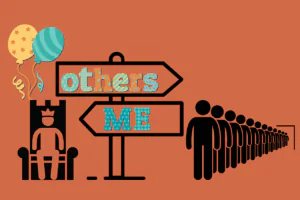
Guest blog by Sarah Van Meter, LCSW
There is no doubt that youth today are facing challenges that previous generations did not. The constant changes in technology, along with dependence on technology, have greatly impacted youth. So how has that affected the development of life skills for teenagers?
For example, I noticed the other day that both of my children’s penmanship is really lacking. I wondered to myself, “Why does my ninth-grader’s handwriting look like that of an elementary student?” It wasn’t until I paused to think about it that I realized most of her homework was being completed on her Chromebook. She has not had the ability to practice and improve her handwriting over the years.
From my position as a therapist working with youth and teenagers, I see more and more of these teens struggling with basic life skills. They struggle to manage money, make phone calls, communicate with others, solve problems, and manage the expected tasks of transitioning to adulthood.
Related Reading: Coping Skills for Teens with Anxiety
I reached out to other youth mental health providers because of the drastic increase in these struggles that I have been seeing. They see the same patterns with their clients and share my concerns. Many providers are seeing a spike in stress, anxiety, depression, and suicide in youth. I cannot help but wonder if the dependence on technology and/or the related breakdown of skills is playing a part in this abrupt increase in mental health conditions in youth.
And it’s not just a local phenomenon. Simon Sinek, a popular speaker and writer for corporations, has explored this topic during recent speaking and training sessions, and he wrote about these very concerns in some of his books. Television’s popular Dr. Phil has tackled business struggles with hiring people from Generation Z. And the other day I caught yet another video about struggles with teaching skills to our youth and helping them to set healthy boundaries with technology. It appears that these concerns are building into epidemic levels.
The Impact of Technology on Life Skills for Teens
So, what is the true problem and how do we help young people? I think the first step is to be honest about the impact of technology. Most teens communicate through text messages or through various apps rather than making calls to others on their phones. Yet when they turn 18, young people are expected to be able to make phone calls to do adult things like schedule their own doctor appointment or return the call of an employer or college recruiter. It’s no wonder many have significant anxiety – they have no experience with basic skills to aid them with problem solving these situations. What may have been common sense for older generations is completely foreign to them.

Teens have lacked the opportunity to learn many person-to-person negotiation, communication, and problem-solving skills. After all, being able to look up any topic at any time on the internet and communicating through technology don’t lend themselves to learning these people skills. This means that parents, coaches, educators, and yes, even therapists, must step back and walk youth through these skills. We must invest the time and energy to help teens figure out how to do some of these basic skills.
When I realized that many of my teen clients struggled with making phone calls, I challenged my oldest daughter to start ordering our food by telephone whenever we wanted to have a delivery dinner. I did not let her use any apps. We sat down together, and I walked her through how to call the number, start the phone conversation, and make the order.
Similarly, instead of telling my children answers to their questions, I challenge them to stop and think about who might help them with finding the answers. In addition, I make a point of modeling ways to start and have conversations with strangers. For example, at a doctor’s appointment I challenge them to be a part of the conversation. If teens are to learn these basic skills for life, adults need to step back from controlling so much of teen’s lives and, instead, support youth as they sit with the difficult emotions and situations while learning and growing through them.
How to Teach Life Skills to Teens
We cannot put the weight of learning these skills on our school districts and educators. It must happen at home. Having regular family game nights can be very beneficial in teaching basic skills such as time management to teenagers. It is important to use games like Monopoly to aid teens with money tips. Battleship and other games help them learn problem-solving skills.
As teens get older, it is extremely important to spend the time to teach them organizational, communication, and other life skills. Do not overlook the importance of having your teen help cook meals or even letting them cook a meal on their own for the family once a week. Chores are a great way to teach children how to clean and maintain a home. Allowing and supporting teenagers to learn to budget for gas money and help pay for their car insurance or cell phone bill teaches them not only how to budget, but also, how to manage paying bills.
Boundaries with Technology
Adults need to set healthy boundaries for youth with technology. Current research shows that every text, app notification, or ding on a device produces dopamine, the feel-good hormone in the brain. That burst of dopamine drives dependence on technology to feel happy. However, it has a dark side. Research also shows that youth have dose-driven increases in being self-conscious, feeling alone, and depressed, along with lower self-esteem, based on the length of time and number of apps that they are on.
Related Reading: How to Recognize Generalized Anxiety Disorder in Teens

So, the more teens are on their phones the more likely they are to have increases in various mental health conditions. As for younger children, research is finding that they are struggling with having lower attention spans, needing constant stimulation, and struggling with being creative and imaginative. Like I said to my youngest daughter, it’s okay to be bored. Many amazing things were created because someone got bored and then had a problem-solving thought.
It is okay for parents to set time limits on apps and to have their children put away their phones during dinner, family time, or when doing homework. You may initially feel you are being unfair to your children by not getting the latest and greatest in technology, but it is beneficial to minimize their exposure to technology. Young children will still prefer to play with a cardboard box if given a chance. A teen will still read, draw, or listen to music if they are not plugged into their phone. Family walks, playground time, game nights, family movie nights, and reading stories together are all things that parents can bring back to help youth.
Yes, your children will fight and push back when you try to limit their time on technology or ask them to put away the phone. This is for three reasons:
1) Children and teens (like adults) are resistant to change.
2) They do not want to lose that dopamine burst so they will not want to be away from their phone.
3) Kids and teenagers (like many adults) have a fear of missing out (FOMO).
Help your teen to work through this because once they are used to being without technology, they usually really start to enjoy the other activities. It is okay for parents and adults to realize that the things they did with their parents and grandparents are still beneficial to do with children and teens.
If you need help navigating technology and teaching life skills to your children or teens, therapists at Life Care Wellness can work with you. Please reach out to us at our Glen Ellyn, Sycamore, and Chicago (Jefferson Park), Illinois, offices.
Sarah Van Meter specializes in working with at-risk youth, youth in foster care, and those with complex trauma. She uses Motivational Interviewing, Cognitive Behavioral Therapy (CBT), Dialectic Behavioral Therapy (DBT), and Somatic Experiencing (SE). Sarah sees clients of all ages – children as young as 5 through older adults – in the Sycamore office of Life Care Wellness.




